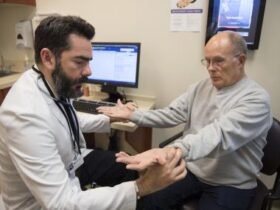The Gulf Approved Medical Centers Association (GAMCA) plays a crucial role in the pre-employment process for expatriates aiming to work in Gulf Cooperation Council (GCC) countries. Saudi Arabia, Kuwait, the United Arab Emirates, Qatar, Bahrain, and Oman are some of these nations.GAMCA sets the medical standards and regulations to ensure that all expatriates are medically fit to work in these countries. This article provides a detailed overview of GAMCA, its medical examination process, and its significance for expatriate workers and their employers Gamca Medical Status.
Understanding the GAMCA Medical Examination
What is a GAMCA medical examination?
Every expatriate must pass the GAMCA medical examination, a mandatory health check-up, before receiving a work visa for GCC countries. The purpose of the examination is to stop the spread of communicable diseases and verify that incoming workers can perform their jobs without endangering their own or others’ health.
Components of the Examination
The GAMCA medical examination includes a series of tests covering:
- General physical examination
- Blood tests for infectious diseases such as HIV/AIDS, hepatitis B and C, syphilis, and malaria
- Chest X-ray for tuberculosis
- Urine analysis for renal disorders or infections is necessary.
- Tests for common non-communicable diseases such as diabetes and hypertension
Each test aims to screen for conditions that could affect the worker’s ability to perform their duties or require extensive medical treatment, thereby impacting public health services in the host country.
The Process of GAMCA Medical Certification
Registration and appointments
To undergo the GAMCA medical examination, individuals must first register online through the official GAMCA website. During registration, the GAMCA assigns applicants to one of the approved medical centers. It’s essential to schedule an appointment and attend the medical check-up as per the given date and time.
During the examination,
On the day of the examination, it is crucial for applicants to bring all necessary documents, including their passport and two passport-sized photographs. The medical examination typically takes a few hours, depending on the queue and the tests required.
Receiving Results
Usually, results are accessible in three to five business days.These results, which determine an individual’s medical fitness, are directly received by the respective GCC embassies. If the GCC embassies declare the applicant medically unfit, they will specify the reasons and may bar the applicant from entering the GCC countries due to their medical condition Gamca Medical Status.
Implications of GAMCA Medical Status
For expatriate workers
The GAMCA medical examination’s outcome has significant implications for workers.
- Fit Status: If declared fit, workers can proceed with their visa application and subsequent travel plans.
- Unfit Status: A declaration of unfitness may result in a visa denial, and the specific medical reason may impact future applications.
For Employers
Employers in the GCC rely on the GAMCA’s medical status to ensure that their future employees will be able to perform the required tasks without any health issues. Additionally, it aids in the management of healthcare expenses that employees may incur while in the country.
Challenges and Controversies
While the GAMCA system aims to streamline the medical testing process and protect public health, it has faced criticism Gamca Medical Status.
- Lack of Transparency: Sometimes, the reasons for declaring an applicant unfit are not transparent, leading to confusion and distress among applicants.
- No Appeal Process: Currently, there is no effective appeal process for those declared unfit, which can seem unjust, especially if the medical conditions are manageable or non-infectious.
Conclusion
The GAMCA medical examination is an integral part of the employment process for those seeking to work in the GCC countries. It ensures that all workers entering these countries are free from serious health issues, thus safeguarding the workforce and the public. However, to ensure fairness and justice for all applicants, we could improve the process with greater transparency and an effective appeal mechanism. We hope to implement these changes as the system evolves, which will benefit both expatriate workers and their future employers in the GCC Gamca Medical Status.






